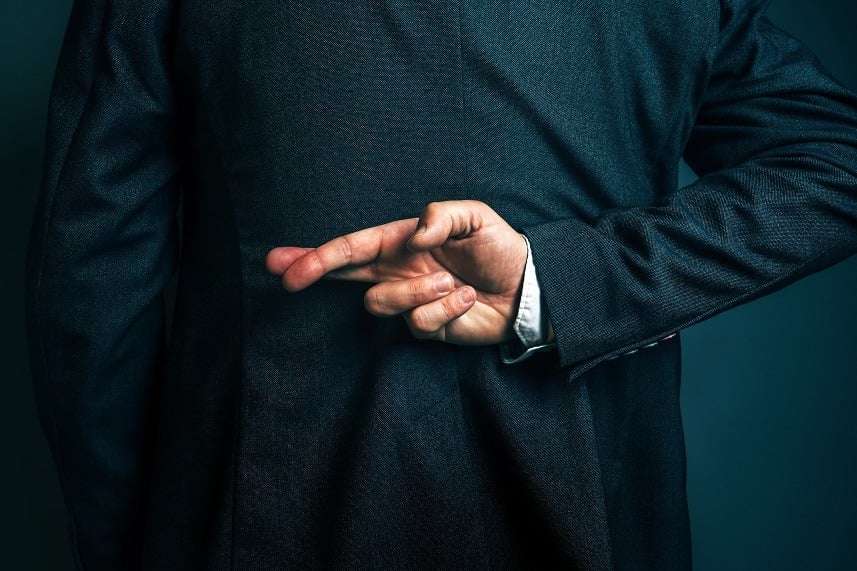Whether it’s your co-worker or a family member, chances
are there’s someone in your life you would describe as a total
“egomaniac.” If there’s not, you only need to flip on the news to see
headlines describing a celebrity or politician as one. Egomaniac has
become a particularly hot adjective to describe President Donald Trump,
with publications, including The Guardian, using the word as a catchall for the Twitter-obsessed president.
Egomania has made its way into casual language as a shorthand
for the self-obsessed, but what does it actually mean? Egomania is
sometimes used interchangeably with megalomania, or an obsession with
power. It shares many similarities with narcissistic-personality
disorder, according to Psychology Today. While not all egomaniacs have fully fledged narcissistic personality disorder, there are several signs of narcissistic personality disorder
that can also be used to indicate egomania. It’s important to remember,
however, not all symptoms of egomania are exclusive to personality
disorders. Delusions of grandeur, for instance, can also be a very
severe symptom of schizophrenia. And egomania, while an informative concept, is not a diagnosis.
If you want to know whether your boss or friend is more self-obsessed
than average, read on for the signs you might be dealing with an
egomaniac.
1. They have an exaggerated sense of self-importance

This guy thinks he’s the most important person in the room.
Egomaniacs might aspire to be famous, but even if they’re not they
still think they’re the most important person in the room. In Ego Is The Enemy, author Ryan Holiday explains great job candidates manage to be confident without coming off as arrogant.
Egomaniacs couldn’t care less about seeming arrogant. Their belief in
their own importance is more crucial than their actual experience or
skills.
2. Egomaniacs exploit others for their own benefit

Egomaniacs will lie through their teeth.
Much like sociopaths,
egomaniacs will lie and use others without remorse. It’s not that they
can’t tell right from wrong. They just care too much about themselves to
worry about the consequences for others.
3. They have a huge sense of entitlement

Egomaniacs need pampering.
Egomaniacs feel entitled to favorable treatment, regardless of the
circumstances. Illusions of grandeur mean anything less than the VIP
treatment will set off an egomaniac.
4. Egomaniacs are often addicted to social media

Social media provides the attention egomaniacs crave.
Whether it’s constantly posting selfies or sending out a dozen
tweets, egomaniacs are in constant need of attention. Social media has
proved a boon to egomaniacs looking for a fast-track to celebrity. While
scientists are in disagreement over the extent to which social media
and narcissism are linked, a number of studies have shown a positive correlation between indicators of narcissistic-personality disorder and social media use.
5. They have no regard for others

Egomaniacs only care about their own needs.
Egomaniacs think they run the show, even if they don’t. Other
people’s time and feelings mean nothing to them unless it’s to serve
their own needs. While this kind of behavior can bulldoze others, it can
also wreak havoc in egomaniacs’ careers. For instance, actor Charlie
Sheen’s notorious behavior disrupted not just one but two of his recent
television shows. And he’s not the only one. These 10 actors’ egomania threatened to ruin popular shows.
6. Egomaniacs are attracted to jobs in politics and entertainment

President Donald Trump delivers a speech to Congress.
Dwight D. Eisenhower allegedly once said, “Any man who wants to be
president is either an egomaniac or crazy.” Regardless of whether the
quote is real, it’s not too far off. A quick search of the news will
show the word used disproportionately in association with celebrities
and politicians (especially Trump). Although it might seem like a bad
thing to have so many egomaniacs in power, a 2011 Penn State study found egomaniacs’ self-confidence makes them better leaders despite their other flaws.
7. They love excess and extremes

Egomaniacs are always looking to take things to the extreme.
While egomaniacs’ biggest addiction is themselves, their sense of
grandeur and need for attention can lead to other excesses. That can
turn into partying or gambling.
8. Egomaniacs hate to lose

Egomaniacs will never take the blame.
Persistence can be a good thing, but no one likes a sore loser.
Egomaniacs will insist their opponents cheated or someone rigged the
game before they accept a loss.
9. They have an insecurity complex

An aggressive facade might cover insecure feelings.
Although it might seem contradictory, some egomaniacs might suffer
from an inferiority complex, as well. As psychotherapist Michael Formica
explains in Psychology Today,
egomaniacs use feelings of grandiosity and aggressive behavior to mask
their own security. In other words, some egomaniacs might be suffering
from a Napoleon complex.
10. They ridicule others

Those with high and low self-esteem tend to bully.
Not only do egomaniacs hate to lose, they hate to see others win.
Egomaniacs inflate their sense of self by putting down others. While
some egomaniacs might suffer from low self-esteem, researcher Nathaniel Branden has shown an inflated ego can lead to bullying, too. Egomaniacs on both ends of the spectrum can be bullies.
11. They are hypersensitive

Criticism is not an egomaniac’s friend.
Egomaniacs can dish it, but they can’t take it. Most famous people
understand that with celebrity comes criticism. And, yes, some jokes are
mean. But if you throw a tantrum after being spoofed on late-night
television, you’re either an egomaniac or in the wrong business.












No comments:
Post a Comment